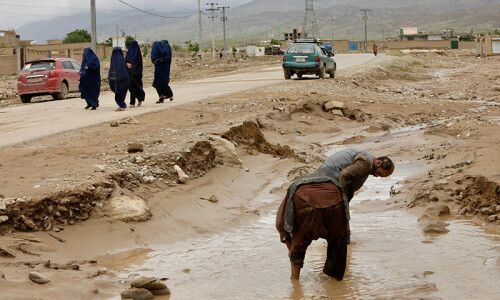China, India stamp maps on visas to show disputed territories as their own

NEW DELHI: India is stamping its map on visas given to Chinese visitors, an Indian official said Saturday, after China began issuing passports showing disputed territories as its own.
“We have started issuing visas with India’s map as we know it,” said a foreign ministry official, who did not wish to be named, declining to comment further.
India’s tit-for-tat action comes after China began issuing new biometric passports showing Arunachal Pradesh and Aksai China – regions that New Delhi claims – as part of Chinese territory.
And the response comes amid already strained ties between the two Asian giants.
Beijing has also included disputed islands in the South China Sea in the map outline on the new passports, angering both the Philippines and Vietnam, as well as areas including two of Taiwan’s most famous scenic spots.
Early this week, the Philippines foreign secretary wrote a protest note to the Chinese embassy and the Vietnam government said it has also lodged its objections with Beijing.
India’s The Hindu newspaper said the Indian government had decided not to take up the issue formally with China.
“It feels it will be better to speak through actions... than words,” the newspaper quoted an unidentified government official as saying.
Beijing has attempted to downplay the diplomatic fallout from the recently introduced passports, with a foreign ministry spokeswoman saying the maps were “not made to target any specific country”.
The disputed border between India and China has been the subject of 14 rounds of fruitless talks since 1962, when the two nations fought a brief, bloody war over the north-eastern Indian state of Arunachal Pradesh.
China’s build-up of military infrastructure along the frontier has become a major source of concern for India, which increasingly sees Beijing as a longer-term threat to its security than traditional rival Pakistan.
India is also wary of increased Chinese activity in Sri Lanka and Bangladesh which New Delhi sees as within its sphere of influence.










































